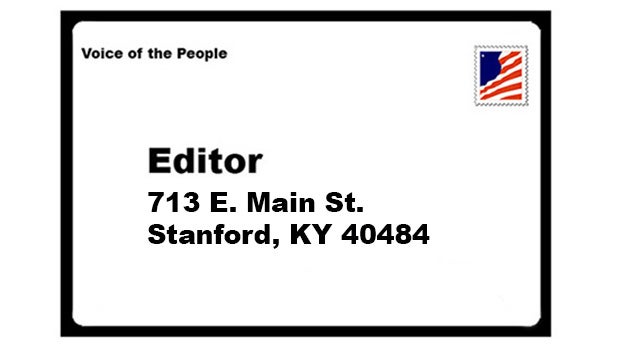Don’t let open government become another victim of the COVID-19 pandemic
Published 12:20 am Wednesday, April 22, 2020
|
Getting your Trinity Audio player ready...
|
 By DEAN RIDINGS
By DEAN RIDINGS
CEO, America’s Newspapers
Federal and state freedom of information laws — intended to keep government meetings and records open and accessible to citizens — are more than seven decades old, and yet they often seem fragile and subject to the winds of political climates.
The history of these laws is one of expanding access after scandals such as Watergate, then tightening following crises like the 9/11 terror attacks.
Now many government entities in states across the country are using the COVID-19 public health crisis as an all-purpose excuse to tighten access or even close meetings that should be open to all, and dragging their feet or simply ignoring requests for records that belong to the public.
In Illinois, 200 mayors have asked the state attorney general to allow them to ignore the deadline of five business days that the state Freedom of Information Act sets for responding to public record requests.
In California, the Voice of San Diego reports that most government agencies in the region it covers are simply refusing to provide records to the public as required under the California Public Records Act.
A USA Today Network investigation by reporter Jessica Priest found 35 states have at least temporarily altered their open government laws because of the coronavirus crisis.
Even in Florida — a model among states for open government laws — the state at first balked at releasing public information identifying state-regulated elder-care facilities that have reported COVID-19 cases and deaths.
In all these cases, and many more across the United States, the rationales are the same. Government agencies say their personnel are working remotely, with a skeletal staff and just can’t fulfill these requests until some vague future when the pandemic abates.
Or, more gallingly, they argue that they are too busy on “essential” work to attend to the public’s right to know what their government is doing in their name and with their tax dollars.
The response that the Voice of San Diego got from San Diego County spokesman Michael Workman could have come from hundreds of other government entities: “The public interest in receiving records at this time is outweighed by public interest in having county personnel free to handle this ongoing emergency. We do not anticipate responding to your request until the emergency order has been lifted.”
But it is precisely because of the public interest that news organizations and private citizens, who file the great majority of FOI requests, are asking for these public documents.
These are not media “gotcha” fishing expeditions, but news organizations holding government accountable on behalf of their communities.
The Voice of San Diego, for instance, wants to know how and when agencies across the county responded to COVID-19. It points out that similar reporting based on official emails during the region’s deadly Hepatitis A outbreak in 2017 led to a California law to improve communication during public health crises.
In addition, the Miami Herald was seeking to identify elder-care facilities that have reported cases of positive tests for the coronavirus.
“We shouldn’t have had to resort to legal action in the first place,” said Herald Publisher and Executive Editor Aminda Marqués González. “Anyone with a relative in an elder-care facility has a right to know if their loved ones are at risk so they can make an informed decision about their care.”
There was no issue of privacy: The newspaper was not seeking the names of patients or staff who have tested positive. And it turned out the Herald didn’t need to pursue its lawsuit. Florida released the information under pressure not just from news organizations — but a concerned public as well. The same thing happened in Illinois, where state authorities had tried to withhold information on coronavirus cases at nursing homes.
In both states, local newspapers quickly put searchable information online so people could see if a facility housing a family member or in their neighborhood had been affected by the coronavirus.
It is, of course, understandable that agencies might feel under siege in the uncertainty of this pandemic. But opening public records relating to government actions on COVID-19 is as urgent as any other essential government function right now.
The public needs to know how governments are responding to COVID-19. Certainly, agencies might set priorities on what needs to be released immediately and what might wait — but they cannot simply grant themselves the right to indefinitely delay obeying freedom of information laws.
David Maas of the Electronic Frontier Foundation wrote perhaps the best summary of this issue the other day: “While COVID-19 will certainly interrupt some of our normal expectations, it is essential that our democracy continue to function through these hard times. That means ensuring that the public can understand and hold officials accountable for the decisions they make in the halls of power while we’re all stuck at home.”
The COVID-19 pandemic has reminded us of the grave importance of following personal and community hygiene practices. It brings to mind what Justice Louis Brandeis said way back in 1914, a watchword for all who advocate for open government: “Sunlight is said to be the best of disinfectants.”
America’s Newspaper would only add: In 2020, don’t let open government become another tragic victim of COVID-19.





